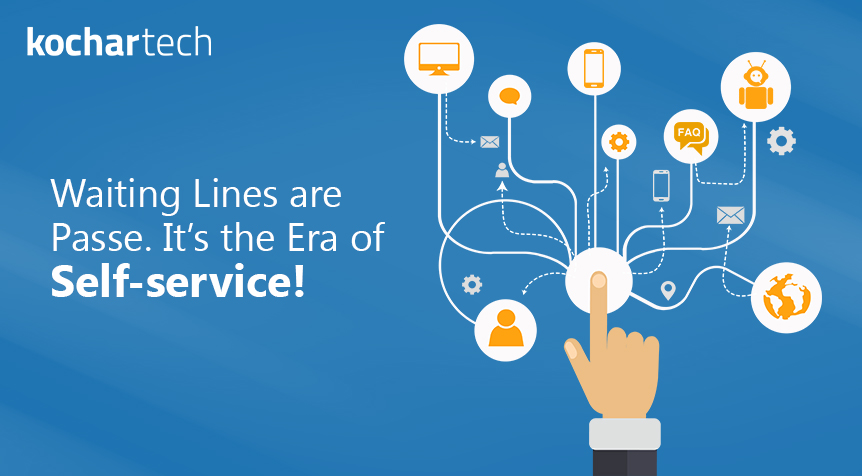
Reduce Customer Effort with Integrated Telecom Self-Service
Posted On: November 3, 2016
Self-service lanes appeared in the grocery stores for the first time. The way they captured customer interest, attracted other industries to deploy self-care solutions as well. For telecoms, these digital tools help reduce customer effort and attract a higher level of loyalty and satisfaction from their subscribers.
Automated self-care tools not only simplify the process of customer service but also empower telecom subscribers to get their issues resolved, as and when they want. This brings a win-win situation for operators with reduced costs, increased loyalty & retention, as well for subscribers with instant, hassle-free service.
Empowered Subscribers
Self-care enables operators to offer their subscribers with the ability to resolve their issues on their own. This allows operators to meet the rising expectations for the use of self-service by customers. As stated by Kate Leggett from Forrester, use of mobile or web self-service is preferred over calling an agent. The use of FAQs or self-help section on a company’s website has increased from 67% to 81% from 2012-2015.
Thus, deploying a self-care customer engagement software ensures that telecom support agents are free to address critical issues requiring human-assisted support.
Gathering Actionable User Data
Automating customer service through self-help tools allows telecom companies to gather data about the problems and issues faced by customers. This helps develop proactive methods to prevent and/or resolve queries before they become a major trouble. This further helps reduce customer effort and excites end-users as they feel valued and enjoy a frictionless experience.
Access to such data helps a telecom company predict about when their customers are likely to complain or churn, they can easily prevent any business loss.
Agent Support as an Escalation Channel
Though self-service helps minimize call volume and cut support costs, there are certain issues or problems that need human intervention to be resolved. Thus, operators should ensure that their self-care channels are backed by customer service agents, in the case of any escalation.
Voice based support is increasingly evolving to be an escalation channel, rather than a primary one. Today, customers are willing to resolve common issues/queries via a self-service channel, while leaving complex ones to be resolved by an agent.
Thus, self-service platforms offers a one-stop solution for telecom service providers to reduce customer effort, while keeping support costs low and improve efficiency.



